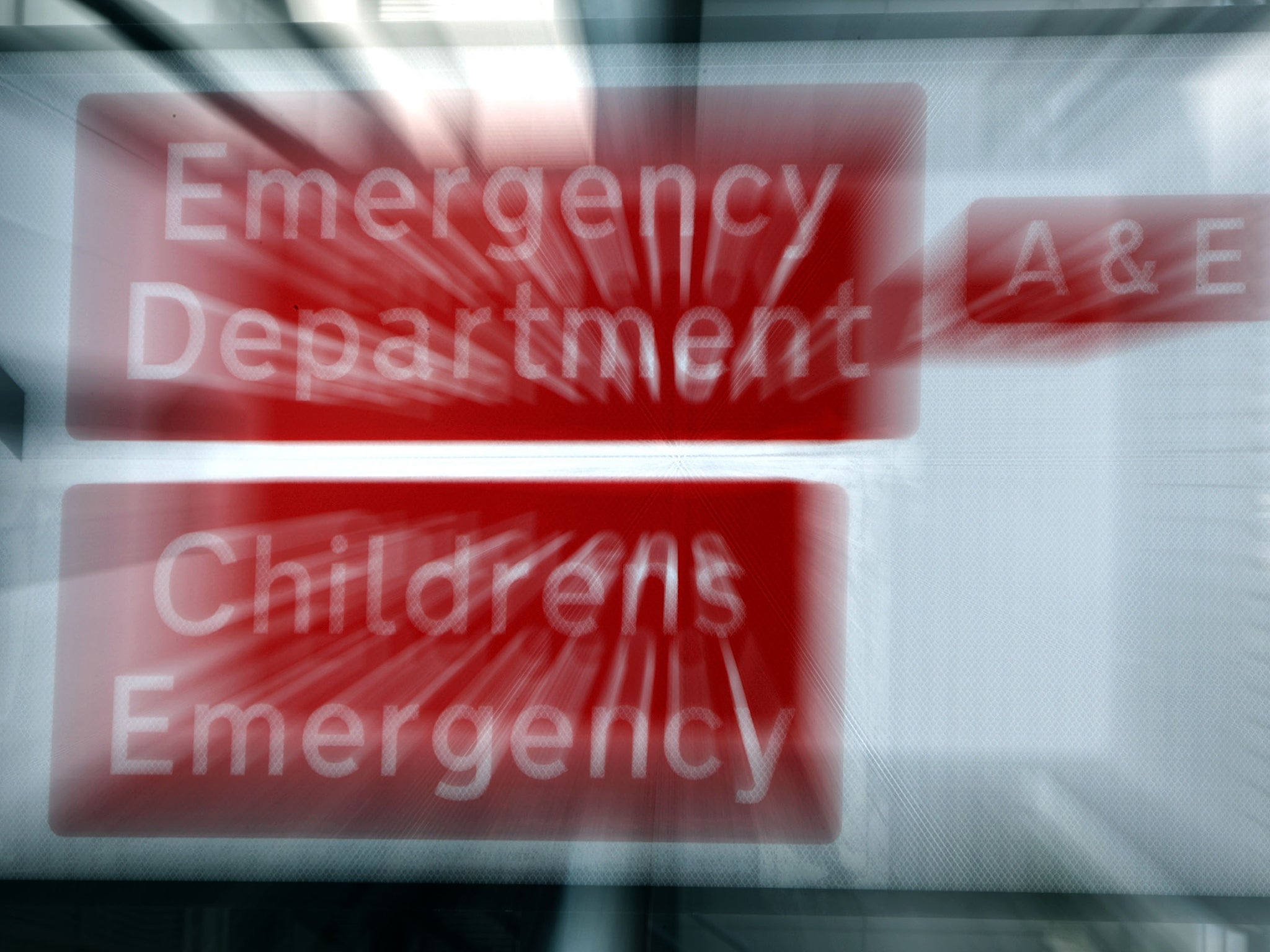Children no more likely to die if admitted to hospital at the weekend, study says
Research in Scotland contrasts with earlier study claiming babies delivered at weekends were 'signifcantly more likely to die'

Children are not more likely to die after being admitted to hospital at the weekend compared to weekdays, according to a major new study that analysed more than half a million admissions.
Paediatrician Dr Steve Turner showed that between January 2000 and December 2013 there were 251 deaths in Scotland between Monday and Friday and 84 on the weekend.
The study, presented at a Royal College of Paediatrics and Child Health research conference in Edinburgh on Friday, is in contrast to research published earlier this week that claimed babies were “significantly” more likely to die if admitted to hospital at the weekend.
An Imperial College London study of more than 1.3 million births found there were around 7.1 deaths per 1,000 babies delivered at weekends, which was seven per cent higher than on weekdays. Both studies will fuel the ongoing debate over whether a seven-day NHS service will improve patient safety.
The latest paper, Shall we wait until Monday?, suggests that paediatric care in Scotland may actually be better at weekends with 7.8 per cent of patients admitted between Monday and Friday needing readmission, but only 7.3 per cent of those admitted at weekends having to come back.
Data was used from 574,403 admissions of patients up to the age of 16 who were admitted to Scottish hospitals over the 13-year period. Researchers found that Mondays was the busiest time for parents to bring their children to hospital with the first weekday accounting for 16 per cent of all admissions. The quietest was Saturday accounting for 12 per cent of all admissions.
Children admitted on Friday were most likely to be discharged on the same day as admitted with Sunday the least likely of this occurring. In NHS Grampian, public holidays which fell on weekdays experienced weekend-like activity and admissions reached a peak at 11am which persisted to 11pm.
The team also found there was a 20 per cent increase in admissions with conditions requiring intensive or high dependency care at weekends compared to weekdays. This reflected a smaller number of children being admitted at the weekend but the same number of children with very serious conditions being admitted seven days a week.
Lead author Dr Turner, said: “There are increasing pressures on hospital services but relatively little is known about the numbers of paediatric admissions. This study aimed to help plug this gap in knowledge and help us identify how any increase in demand on paediatric services might be managed in future.
“Although the numbers are mercifully small, our research shows there were no more deaths over weekends than during week days. Our results also suggest that extrapolating evidence from adult care to the paediatric setting is not always accurate.”
Dr Turner said there was “always room for improvements” and called for further research to get a better idea of quality of care in hospitals and better understand what happens to children within the healthcare system before and after a hospital admission.
The analysis was undertaken in light of the UK Government’s Keogh report, which cited evidence from adult patients that mortality was higher after a weekend admission.
Health Secretary Jeremy Hunt has used the report to claim there were 11,000 “excess deaths” within 30 days among all patients admitted at the weekends, citing understaffed hospitals as the reason. The editor of the British Medical Journal accused of Mr Hunt of misrepresenting the data.
Join our commenting forum
Join thought-provoking conversations, follow other Independent readers and see their replies
Comments